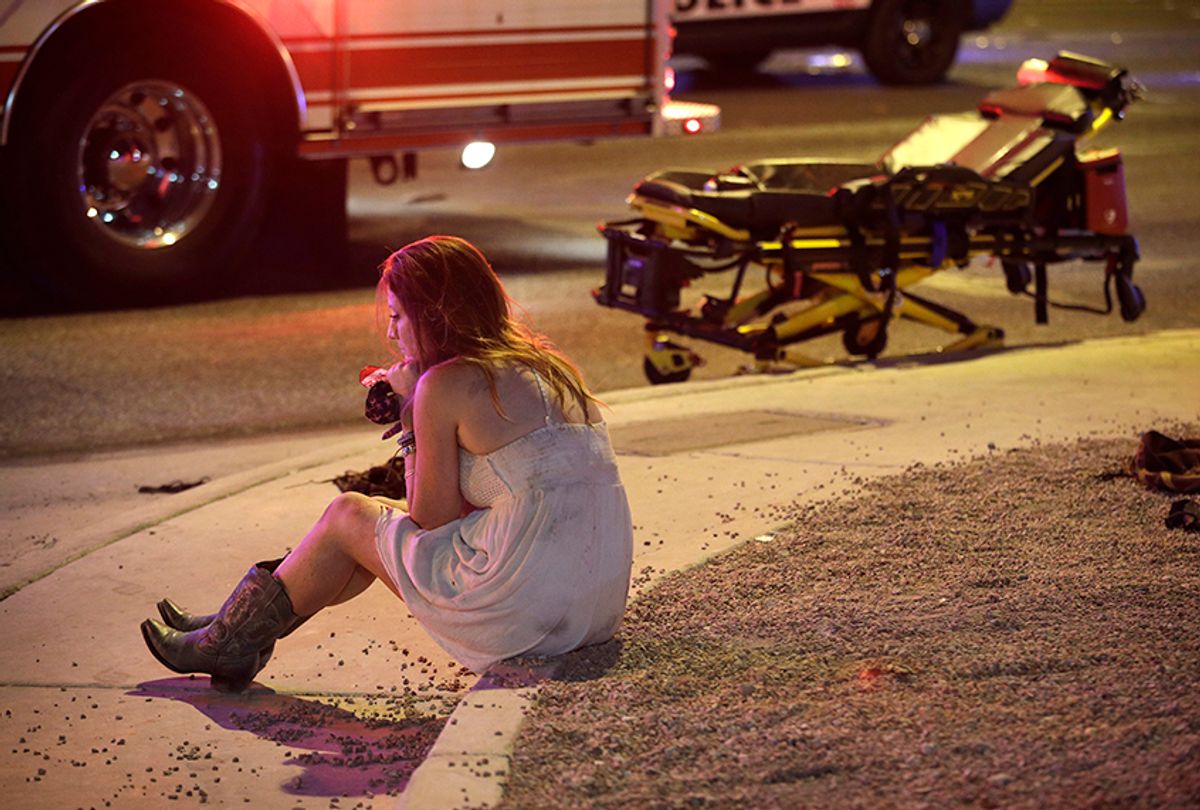Whenever a major tragedy occurs, the fringe conspiracy theorists are usually somewhere close behind. A sign of the times is that even in the wake of the Las Vegas massacre, survivors are now faced with a second trauma: barrages of death threats and intense name-calling via social media from users who deny that these victims suffered through a life-changing event.
For some reason, these people always seem to exist.
Braden Matejka, who survived a bullet to the head in Las Vegas, has been a target in these attacks, that eventually led him to abandon social media altogether.
"You are a lying piece of shit and I hope someone truly shoots you in the head," a comment on Matejka's Facebook page said, according to The Guardian. It had only been a week since gunman Stephen Paddock opened fire on concertgoers, killing 58 people and leaving hundreds more injured.
It wasn't the only comment, nor was it the most vile, and it certainly wasn't the last.
"Your soul is disgusting and dark! You will pay for the consequences!" another comment read. Then a meme circulated on Facebook with a picture of Matejka after the shooting, which read, "I’m a lying cunt!"
At the age of 30, Matejka narrowly evaded death but is still left with the scars — both mentally, and physically — of a gruesome and tragic event.
"There are all these families dealing with likely the most horrific thing they’ll ever experience, and they are also met with hate and anger and are being attacked online about being a part of some conspiracy," Taylor Matejka, the brother of the survivor told The Guardian.
He added, "It’s madness. I can’t imagine the thought process of these people. Do they know that we are actual people?"
Apparently, the conspiracy theorists don't care if their online abuse causes real-life harm to others, especially those still traumatized from a national tragedy. The online harassers have "targeted survivors and victims’ loved ones, spamming every social media platform with misinformation and abuse," The Guardian reported.
Some believe the government staged the shooting, or don't believe it happened at all. Matejka at first attempted to engage with the theorists and respond to their hateful comments, but eventually he gave up and deleted all of his social media accounts.
Matejka's brother added, "If you want to spend your whole life searching conspiracies on the internet, you’re free to do that but it shouldn’t come at a cost to the victim’s wellbeing."
But these online abusers are not just unique to the Las Vegas tragedy. It was seen after Sandy Hook and the Pulse nightclub shooting in Orlando. Others will undoubtedly follow suit in the future. Challenging narratives and asking genuine, hard-hitting questions is one of the most important aspects of journalism, but floating baseless conspiracy theories — especially when they incite the harassment of victims — is dangerous and contains real-life consequences.
But Alex Jones always seems to be close by.



Shares